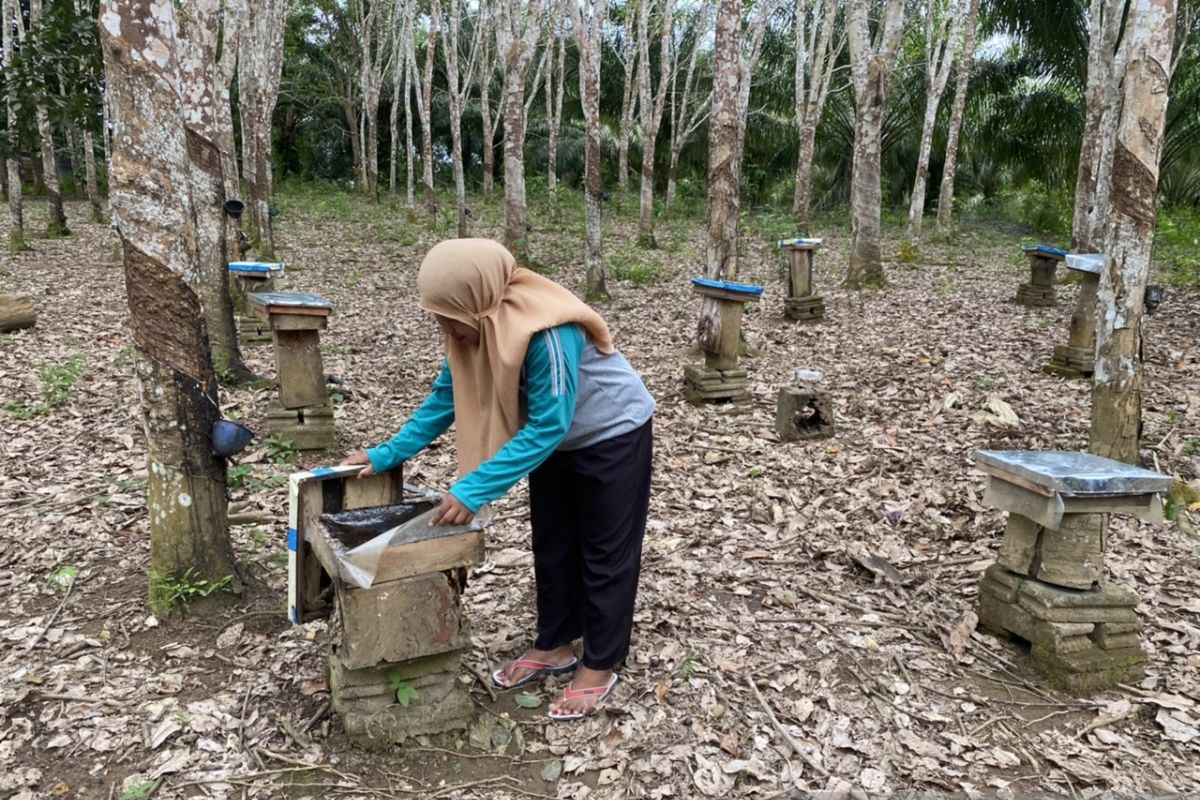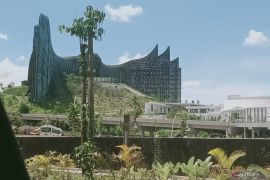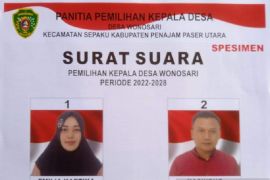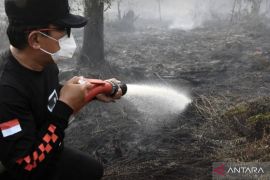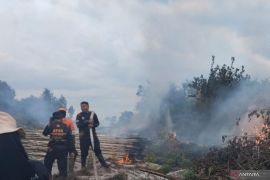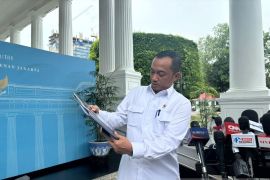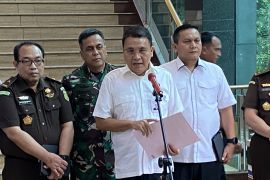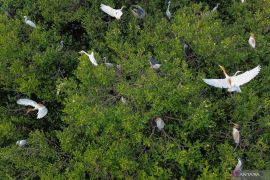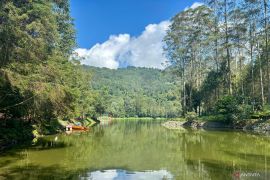These bees produce trigona honey, also known as kelulut honey. The honey is now a source of income for the Nyungen Jaya Forest Farmers Group in Rantau Atas village, Muara Samu district, Paser district, East Kalimantan.
Kelulut honey itself stands out among other honey products, owing to its higher nutritional content than regular honey, its darker color indicating higher antioxidant content.
The honey also contains trehalose, or a type of sugar with low glycemic index, according to a 2020 study conducted by the University of Queensland in Australia.
The leader of Nyungen Jaya Forest Farmers Group, Aliansyah, said that his village has long been known as a producer of forest honey in the Paser district area. However, in the past, only a few people were involved in the business of harvesting natural honey from the forest surrounding the village.
"We who don't know anything can only watch. The most we could do was to buy," he remarked.
Related news: City tour along historical buildings in Jember
Now, more and more villagers are involved in honey production. This began with the establishment of Nyungen Jaya Forest Farmers Group in 2018, with the support of the Kendilo Production Forest Management Unit and Forest Investment Program 2 from the Environment and Forestry Ministry.
The FIP 2 project aims to support the development program of Forest Management Units (FMUs) and community empowerment through increasing the institutional capacity of FMUs in sustainable forest management. It also seeks to improve forest-based community businesses through community empowerment.
Nyungen Jaya Forest Farmers Group received 120 stup as a form of assistance to start trigona honey cultivation in 2019. They also received 100 stup and 20 stupunder the Kendilo KPHP grant and Nusantara Social Forestry Development Program (Bang Pesona), respectively.
The assistance helped Aliansyah and his colleagues to improve trigona honey cultivation. In 2020, they produced a total of 120 liters of honey, and around 227 liters in 2021. The honey was obtained from cultivation in six locations around the village.
Each stup can produce about 0.25–1.0 liter of honey in one month. In total, the production peaked to 55 liters per month, owing to factors such as good weather and the onset of the spring season.
Related news: Sorghum, West Kalimantan's potential alternative to wheat
In 2022, they have harvested only 5 liters due to rainy weather, which affected the performance of the bees in each stup.
So far, the group has distributed honey through two channels, namely Kendilo Production Forest Management Unit and sales carried out by the farmer group members themselves.
The forest management unit is selling the honey, marketed under the 'Kendilo Bee' brand, at Rp200 thousand per liter and plans to increase it to Rp250 thousand per liter in 2021.
The members of the forest farmers group sell the products on a local scale or to employees of mining companies in the area under the brand name ‘Madu Manti.’
Manti Honey is sold for Rp125 thousand per 250 milliliters bottle and Rp225 thousand for 500 milliliters size.
The success of trigona honey production has led dozens of people from Rantau Atas village, including Aliansyah, to submit a proposal for Forest Farmers Group Entrepreneurial Development (Perwira KTH) to pursue trigona honey cultivation independently.
Apart from the group members, there were also other people who submitted the proposal to the Production Forest Management Unit, he said.
Perwira KTH is a part of Kendilo's Production Forest Management Unit program for encouraging entrepreneurial management of non-timber forest products.
Aliansyah said his group wants to expand the honey sales network.
However, they are still hindered by road access issue because it takes two hours to travel to the nearest big city, district capital Tanah Grogot. The path is also not fully paved, making the trip a little difficult when it rains.
This makes delivery difficult when someone purchases honey in small quantities through online shopping. The sales proceeds are not based on the cost of expedition, he said.
Thus, for the time being, almost 90 percent of farmer group's trigona honey production is channeled through the Kendilo Production Forest Management Unit.
He received support to market the products using their own brand as a means to improve the welfare of the village community.
Related news: Baduy women farm for tradition sake, loyalty
Expansion
The intention to expand the market reach of trigona honey products is seconded by the Kendilo Production Forest Management Unit. The head of the Production Forest Management Unit, Muhammad Hijrafie, said the unit is pushing local farmers’ group products, such as charcoal and honey, so they can reach a wider range of customers.
He even wanted to encourage non-timber forest products produced by the group and the forest management unit to be exported to other countries.
He said there are several products other than honey that have the potential to reach a wider market, such as charcoal made from alaban wood (Vitex pinnata), produced by one of the forest farmers group's partners.
Various measures have been done, one of which is by collaborating with the Faculty of Forestry, Mulawarman University, Samarinda, for the development of derivative products.
Among them are propolis or sap produced by honey bees and charcoal-derived products, such as soap and charcoal masks.
Related news: Meet Waisimon, protector of the cenderawasih and forests
Market development is also being carried out after Kendilo Forest Management Unit communicated with various parties such as the East Kalimantan Industry, Trade, Cooperatives, and SMEs Office.
The expansion of the network is being conducted with the expectation that large buyers will distribute products from the farmers’ group to the larger market.
Product sales have been quite good so far, including for trigona honey products. This is because people consume honey to improve immunity.
Hijrafie said that the forest management unit's programs, which promote non-timber forest products, could improve community welfare.
In all programs they initiate, they ensure that all products can be marketed, he said.
Related news: Digital transformation supports sustainable forest management
Related news: RI holds G20 Summit in neutral, impartial manner: Foreign Ministry
Editor: Fardah Assegaf
Copyright © ANTARA 2022
